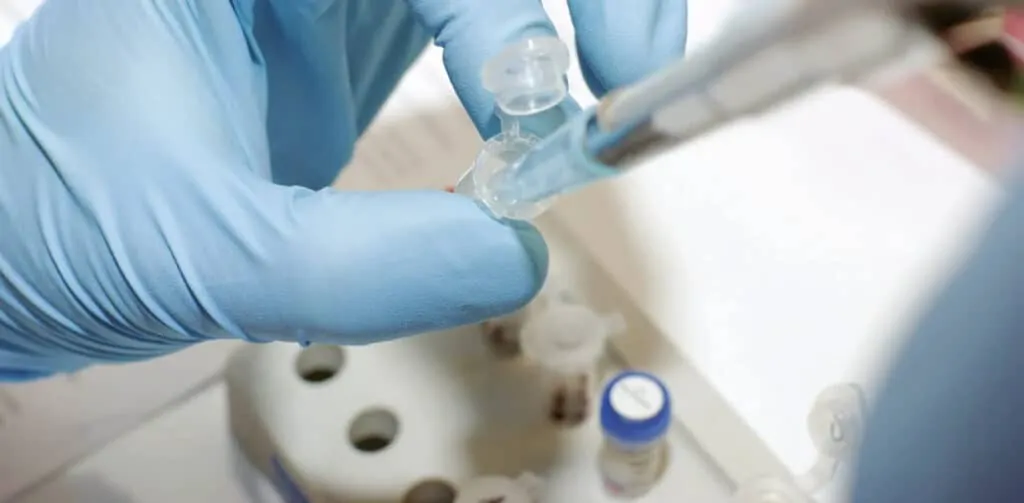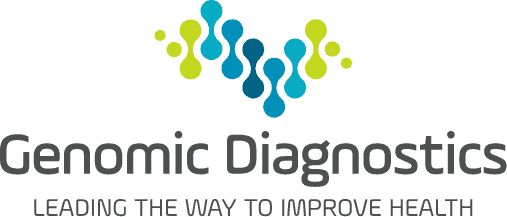Neonatal/Paediatric Genetic Tests
Neonatal and paediatric genomics includes the diagnosis of neonatal land childhood onset rare diseases and the investigation of developmental delay, intellectual disability and autism.
A range of genome-wide and targeted cytogenetic and molecular tests are available depending on the clinical indications for testing.

Chromosome microarray (also known as molecular karyotyping) is the gold standard for the diagnostic investigation of autism spectrum disorder, learning difficulty, developmental delay and where there are clinical indications of congenital anomalies. This is an advanced genome-wide investigation used to detect sub-microscopic detect loss and/or gain of DNA that are associated with microdeletion and microduplication syndromes but are not readily detectable by conventional karyotype and/or fluorescence in-situ hybridisation (FISH).
| Test Name | Chromosomal Microarray- Blood |
|---|---|
| Clinical Indication | For the first line investigation of intellectual disability, developmental delay, autism, or in the presence of at least two congenital abnormalities. |
| Gene(s) | Genome-wide |
| Method | Chromosomal Microarray |
| Turn around time | 4 -6 weeks |
| Medicare Eligibility | 73292– Criteria applies |
| Sample Type | Blood |
| Collection Type | Blood: 6mL in EDTA tube Newborn to 12 months: 1mL in paediatric EDTA tube |
| Special Instructions | Request ‘Chromosomal Microarray’ on referral form. Clinical details required. |
Fragile X syndrome (FXS) is an X-linked inherited disorder characterised by developmental delay and intellectual disability. Testing confirms the diagnosis in affected children and can also be offered to other family members who may be at risk of developing FMR1 disorders (late-onset ataxia or primary ovarian insufficiency) or having children with FXS.
| Test Name | Fragile X |
|---|---|
| Clinical Indication | 1. For the investigation of intellectual disability, developmental delay, autism, late-onset ataxia, neurodegeneration or premature ovarian failure. 2. Risk assessment of a relative of a person with an FMR1 mutation |
| Gene(s) | FMR1 |
| Method | PCR Fragment Sizing |
| Turn around time | 2 weeks |
| Medicare Eligibility | 73300 – criteria apply |
| Sample Type | Blood |
| Collection Type | 10mL EDTA tube |
| Special Instructions | None |
Conventional chromosome testing is the applicable for the investigation of syndromes such as Down syndrome, Turner Syndrome and reproductive health.
Conventional cytogenetic analysis involves the analysis of the whole genome at the cellular level to detect large genomic changes and chromosomal rearrangements. This test involves culturing white blood cells to produce metaphase spreads of chromosomes, from which slides are prepared and representative cells are captured into digital images.
| Test Name | Chromosomes Blood |
|---|---|
| Clinical Indication | For investigation of: 1. For the investigation of Down and Turner Syndrome 2. Follow up testing by conventional analysis 3. Parental and family studies |
| Gene(s) | All Chromosomes |
| Method | Conventional chromosome analysis |
| Turn around time | 35 days |
| Medicare Eligibility | 73289 |
| Sample Type | Blood |
| Collection Type | 10mL Lithium Heparin; For Difficult/Paediatric Collect: Min 1mL |
| Special Instructions | Transport cooled or at room temperature |
Fluorescence in-situ hybridisation (FISH) can be used to confirm the diagnosis of specific chromosomal syndromes due to aneuploidies and microdeletions. Available tests are listed below.
The suspected clinical condition for which testing is being sought must be included on the request form.
| Test Name | Rapid FISH for neonatal diagnosis of aneuploidy |
|---|---|
| Clinical Indication | For neonatal diagnosis of suspected chromosomal syndromes |
| Gene(s) | Chromosomes X and 21 |
| Method | FISH |
| Turn around time | 2 days |
| Medicare Eligibility | 73291 |
| Sample Type | Blood Paediatric Collect |
| Collection Type | Min 1mL in 1 x Lithium heparin tube |
| Special Instructions | No additional sample required. Test is performedwith chromosome analysis |
FISH for diagnosis of microdeletion syndromes
| Syndrome/Indication | Chromosome location | Gene |
|---|---|---|
| 1p36 microdeletion | 1p telomere/1p36 | Genes at 1p36 |
| WOLF-HIRSCHHORN | 4p16.3 | Genes at 4p |
| Cri du Chat | 5p15.2 | EGR1 |
| Sotos | 5q31 | NSD1 |
| Williams-Beuren | 7q11.23 | ELN |
| Prader Willi | 15q11-q13 | Genes at 15q11.2-q13 |
| Angelman | 15q11-q13 | Genes at 15q11.2-q14 |
| Smith-Magenis | 17p11.2 | RAR1 |
| Miller-Dieker | 17p13.3 | LIS1 |
| Di George/VCFS | 22q11.2 | Genes at 22q11.2 |
| 22q microdeletion syndrome | 22q13.3 | Genes at 22q13 |
| X inactivation | Xq13.2 | XIST |
| Xp Yp deletions | Xp and Yp | SHOX |
| Yp rearrangements | Yp11.3 | SRY |
| ACRO P = Acrocentric p-arms | All sub-telomere probes | |
| All chromosomes | p-arms acrocentrics | |
| All chromosomes | Whole chromosome paints |
Leading the way to improved health
results in the shortest turnaround time.



